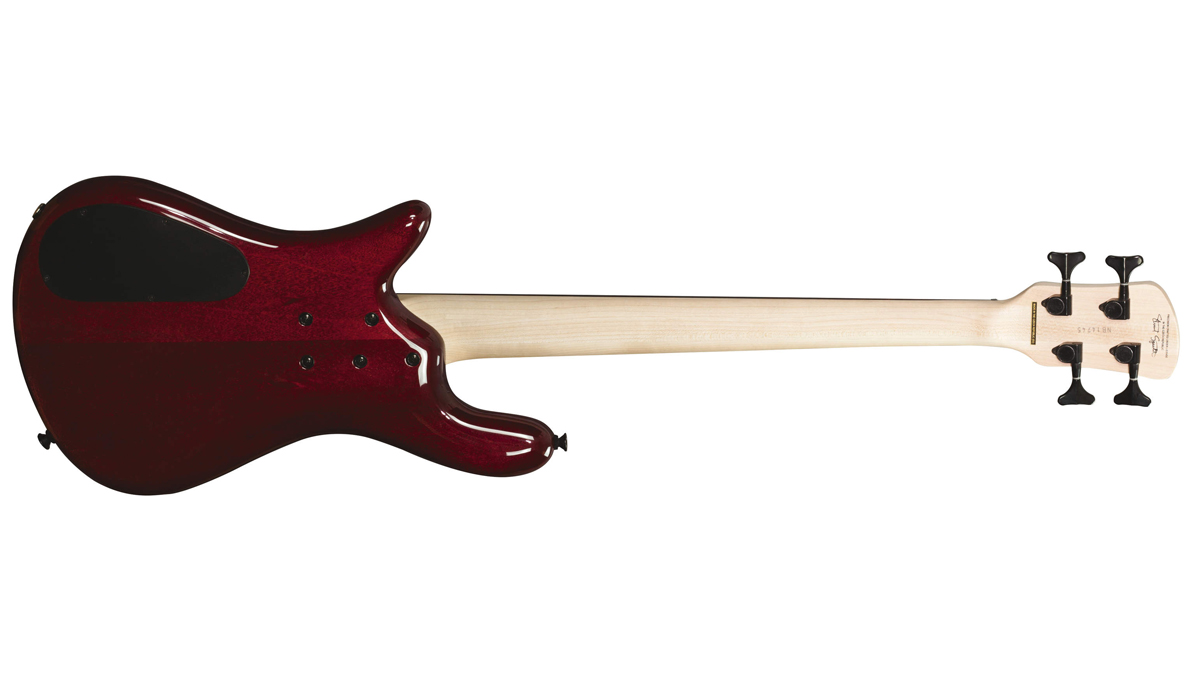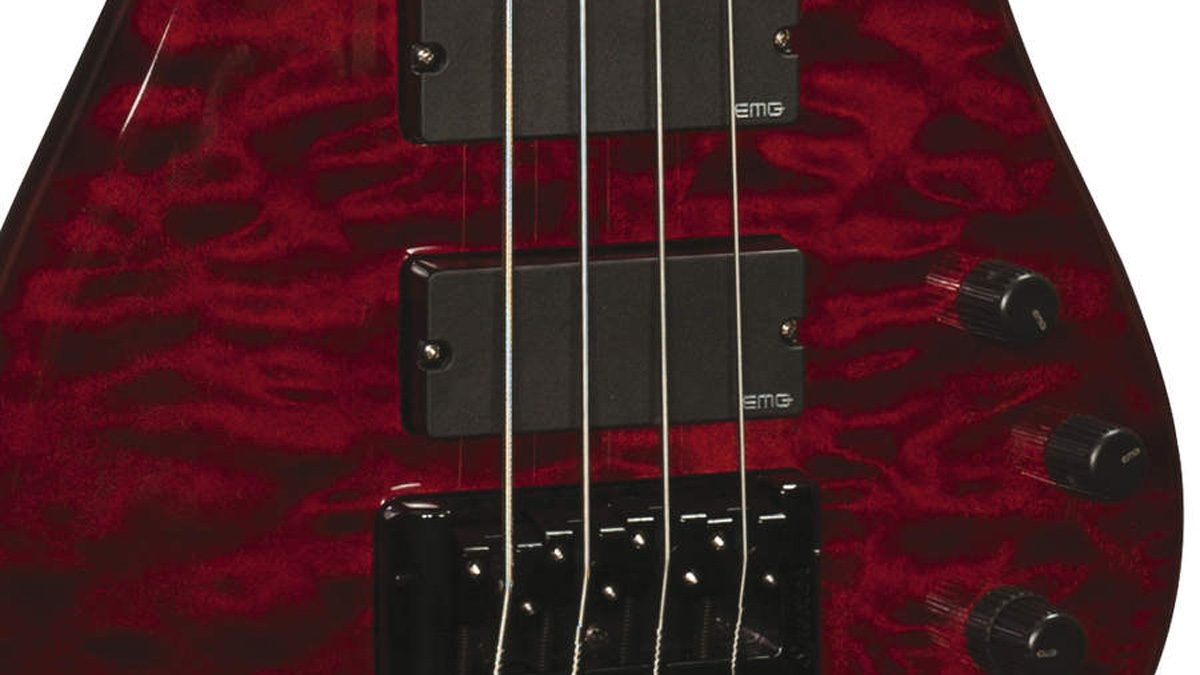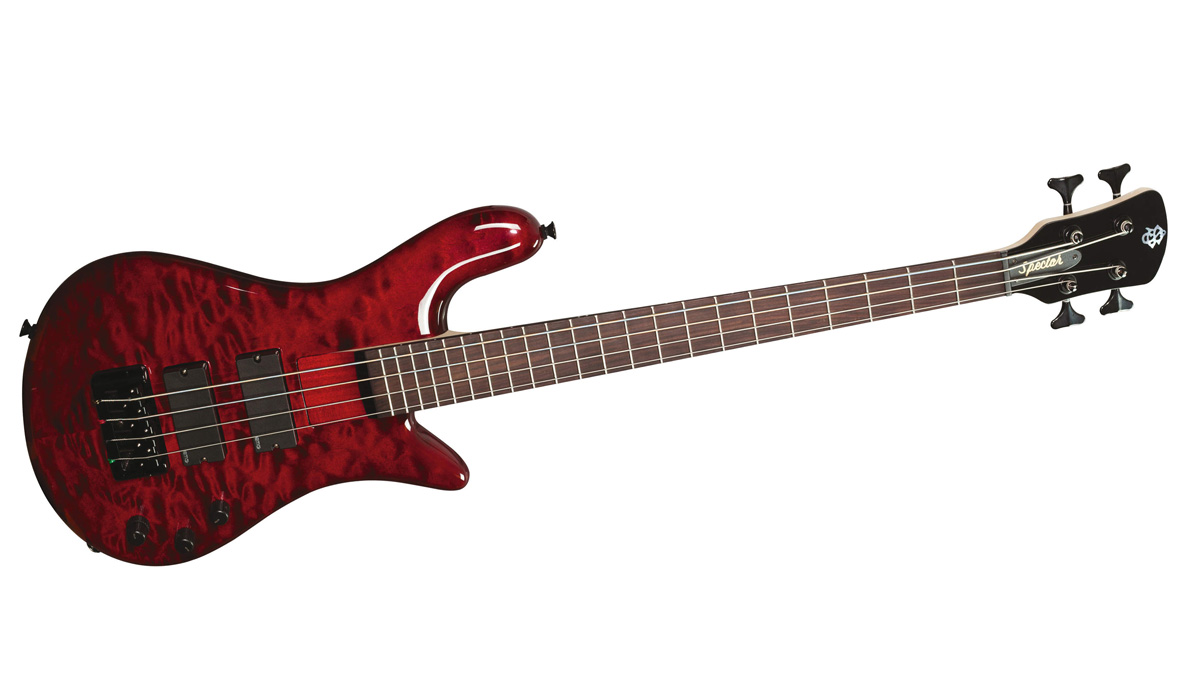MusicRadar Verdict
A milestone in short-scale basses - but it comes at a cost.
Pros
- +
Playability is off the scale; ditto tone range.
Cons
- -
It’s a tad expensive.
MusicRadar's got your back
Getting from A to B can be hard sometimes, unless you have a chauffeured limo that is.
Why not make it easier to get around by playing a bass with a short scale? You may have noticed that basses of reduced fingerboard inches have been more common than usual over the last few years; as to why, we can only speculate.
A greater proportion of younger, female or otherwise smaller-handed bassists, perhaps? Better preamps, so that lesser instruments don’t have to make lesser sounds? A lack of eco-friendly fingerboard woods? General annoyance among the population when airlines can’t fit a full-sized bass on board?
Whatever the case, we welcome this tendency and try to review as many basses of diminutive stature as we can, especially when they’re as tasty as this Spector, which is based on the company’s famous NS body shape, loaded with goodies and costs as much as a 15-year-old ex-sales fleet BMW. At 30”, the scale is four or five inches shorter than the usual spec; let’s see how the little guy measures up.
Build
As with all Spectors, simply picking the Bantam up and giving it a stroke is quite an experience. Just the names of the finishes (Black Cherry Gloss, Black Stain Gloss and White Gloss) make your stomach rumble, and talking of stomachs, the way the body shape allows for abdominal comfort is welcome for anyone who doesn’t have a six-pack under their shirt. More gut-friendly than a ton of yoghurt bacteria, the Bantam (presumably named after the boxing category rather than a chicken) sits against you with supreme ease.

At £1660 you’re handing over a large chunk of your taxed income for this Czech Republic-made instrument, but then again, the money is right in front of you. The alder body, quilted maple top, hard maple neck and Indian rosewood fingerboard add up to a whole lot of eco-friendly timber, and the super-slick finishing throughout literally feels expensive.
Extra features like the five-bolt neck join, neck ramp (for bass-dwelling Smurfs to ski down, potentially), and an utterly beautiful, rounded bridge also shout ‘Money, please!’ at you. Left-hand players need to pay an extra £165 for the privilege, by the way.
Want all the hottest music and gear news, reviews, deals, features and more, direct to your inbox? Sign up here.
Sounds
The controls layout is the familiar volume and pickup blend plus a stacked treble/bass boost, the latter centre-detented (maximum points for that). Flatten off the EQ and you get a polite, crispy, crunchy default tone with plenty of top but only modest bottom end, so head to the bass boost without delay; even a tiny tweak gives the Bantam what it needs to compete. Rolled on fully, your bookshelves will shudder.
Boost the treble and there’s the familiar hollow, cutting sound which we expect from this brand; it’s a fantastic tone for slap bass. A lot of metal players play Spectors too, which might sound counter-intuitive before you realise that the pickups, the popular EMG 35DCs in this case, are smoking hot and put out quite a blast of sound; perfect for cutting through walls of guitar.

Does the short scale impede the tonal performance? No. You can get thunderous and/or glassy sounds very easily. Does the 30” scale feel different? Certainly. The weight, presence and performance effort of a full-length scale bass just aren’t there, which may or may not bother you. It certainly didn’t bother us.
Assisted by the very sympathetic action and smooth, almost unfinished rear neck surface, your fingers will slip happily into position, pretty much wherever you want to go. If the point of a short-scale bass is ease of playability, the Bantam pulls it off with aplomb.
No complaints whatsoever about the feel and performance of this instrument; it’s one of the slickest short-scale basses we’ve played in a while. It’s expensive, of course, which will make its target demographic fairly small; we’ve reviewed quite a few sub-£1000 short-scalers in recent times, all of which do the trick admirably. Then again, they’re not Spectors, a brand which commands intense loyalty, just as it should. If the S-word is in your DNA, you owe it to yourself to give the Bantam a shot.
